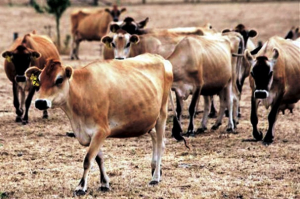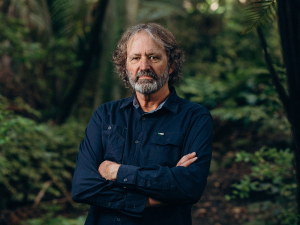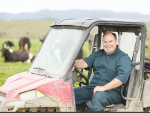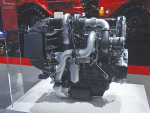With New Zealand experiencing record-breaking heatwaves this summer, AgResearch scientists say farmed animals can be susceptible and the pressure is on farmers to manage it.
The extreme temperatures across the country include the hottest recorded temperature in Dunedin and Invercargill over recent days. The increased heat and humidity raises issues of not only the welfare of livestock, but also production from those animals.
Fortunately extensive research over the last 15 years at AgResearch into dairy cows, and how they cope with the heat, has provided important insights for animal management, says senior scientist Dr Karin Schütz.
“Like many mammals, dairy cows are more sensitive to heat than they are to cold,” Schütz says.
“A large animal like a lactating cow generates a lot of metabolic heat, and while it will increase its respiratory rate and sweat like a human being, it can struggle in especially warm conditions to lose the heat.”
“When you see the animal starting to drool and open-mouth panting, it’s a sign it is in distress from the heat.”
Schütz says the cows will change their behaviour to cope in the warm conditions, including drinking more, eating less, seeking out “micro-climates” in the shade or close to water, and orienting themselves differently from the sun.
“They also don’t lie down as much, which may be to increase the airflow around their bodies.”
Research showed that when the air temperature reached 21degC and humidity more than 75%, it could affect the cow’s behaviour and milk production could decline, Schütz says.
“If you want to keep up production, you need to keep your animals cool. That can mean providing shelter (such as trees), increasing access to drinking water, reducing walking distances, and preventing stress. If it is really hot, a lot of farmers will use sprinklers at their milking sheds to cool the cows as they wait to be milked.”
“Given a choice however, we have found the cows will seek shade over the sprinklers, and from our research we know the cows can tell the difference between different degrees of shade, and will choose shade that protects them more from solar radiation.”
DairyNZ animal husbandry team leader Helen Thoday says proactive prevention of heat stress is more cost-effective than trying to manage the consequences once cows become heat stressed.
“All activity will increase the risk of heat stress, including walking to the water trough, to and from the dairy shed, and even grazing as normal,” says Helen.
“When hot conditions are forecast, some short-term solutions to reduce heat stress are to graze cows close to the dairy shed to reduce walking distance for milking, and to milk later in the afternoon/early evening when the temperature has dropped.”
Farmers can also provide supplementary feed at night, so extra heat generated by digestion occurs at the coolest time.
DairyNZ has a Temperature Humidity Index calculator to help manage heat stress in cows, visit www.dairynz.co.nz/heatstress.
With adequate drinking water also being key, AgResearch is planning to look into the effect of quality of drinking water provided and the effect on production in further research.











